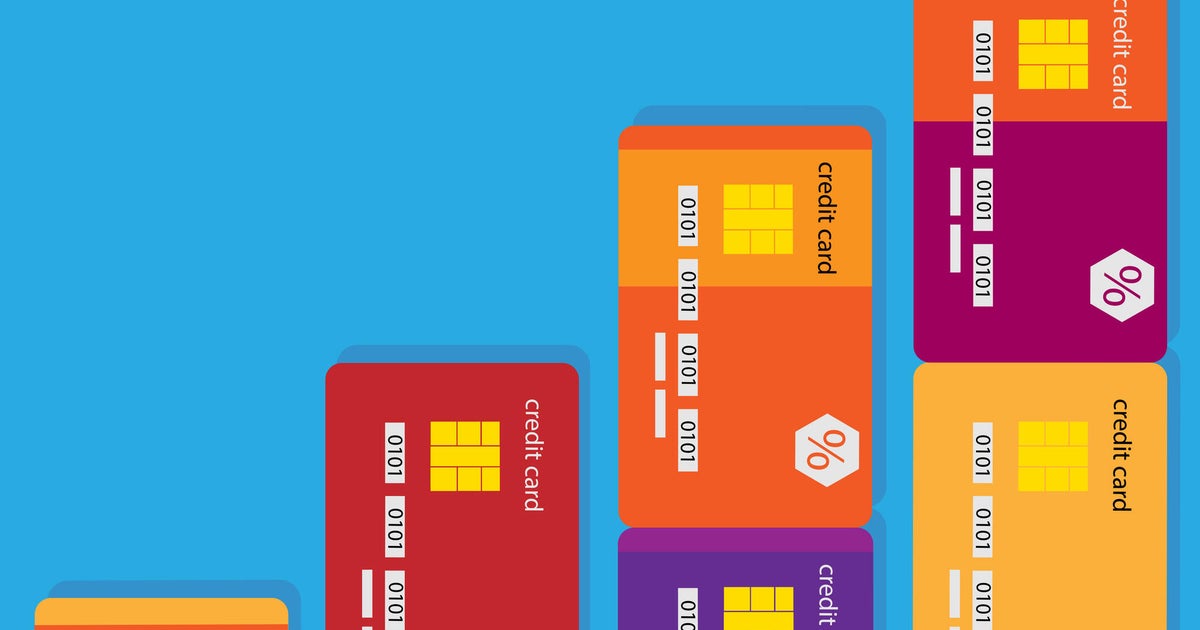Can you get a home equity loan on Social Security?
High inflation has made it hard for many people to stay afloat, especially seniors living on a fixed income. If your expenses outweigh your income, such as if you face unexpected home repairs, health-related costs or you're not able to make your retirement budget work, you might find yourself going into credit card debt or taking out a personal loan.
Yet these forms of borrowing can come with very high interest rates. The average credit card charges over 21% in annual interest, while personal loans cost over 12% according to the Federal Reserve. These high rates add to the cost of paying back debt and can lead to a spiraling situation where you're unable to climb out of the red.
One potential alternative is a home equity loan also known as a second mortgage. These loans generally provide homeowners with a lump sum, fixed-rate loan based on the amount of equity they have in their homes. Note, however, that your home serves as collateral for a home equity loan, and if you can't pay it back, you risk losing your house.
That said, the average home equity loan interest rate is 9.07% as of December 12, thus making this borrowing option often more affordable than credit cards or personal loans.
But if you do need the funds for whatever reason, you might be wondering if you can even qualify for a home equity loan based on your Social Security income. As we'll explore in this article, the short answer is yes, but there can be some nuances to consider.
Start by exploring your home equity loan options here to see what you qualify for.
Can you get a home equity loan on Social Security?
Like with mortgages, a major factor for home equity loan decisions is often your debt-to-income (DTI) ratio. Oftentimes lenders want to see your total debts at a maximum of 43% of your income, including the home equity loan, so if you have enough Social Security income to meet that requirement, you can still typically qualify.
"Social Security income is treated like other sources of income, so considerations for borrowers are largely the same," says Adam Boyd, head of home equity and unsecured lending at Citizens Bank.
That said, if you only have Social Security income, that could mean your monthly income isn't high enough to meet a lender's DTI requirements. While it depends on how much Social Security you receive, many recipients who rely solely on Social Security are on relatively low fixed incomes.
Social Security "is considered income, so it would qualify when applying, but if that's the only income/asset it will make it much harder," says Evan Press, a certified financial planner with Equitable Advisors.
The average Social Security monthly benefit is $1709.70, according to the Social Security Administration. That doesn't leave a lot of room for home equity loan payments. A 20-year, $100,000 home equity loan at an 8.85% interest rate would equal a monthly payment of $890. That alone would lead to a DTI ratio of over 52%, above what most lenders would allow.
Thus, Social Security recipients likely either need to take out a smaller loan or have another income or asset source to qualify. Remember, though, that it's not about where your income comes from — in this case Social Security — but rather your ability to pay back the loan.
Other factors like your credit score, total long-term indebtedness, savings and investments factor into lenders' decisions too, says Jacquie Sullivan, producing branch manager, senior mortgage strategist at Geneva Financial LLC.
"Being on Social Security and not having any other income sources is really irrelevant to the conversation because the amount of income varies by individual circumstances," says Sullivan. "The bottom line is, how do they manage their debt in the context of their income and do their credit and debt repayment histories indicate they have the ability to repay the new loan in a timely manner."
Learn more about your home equity loan qualifications now.
How to qualify for a home equity loan on Social Security
To increase your odds of qualifying for a home equity loan on Social Security, you generally need to show that you have an ability to pay back the loan, based on factors such as getting your DTI below the lender's limit.
"Social Security recipients can improve their chances of qualifying for a home equity loan by having good credit and being able to show assets that could be counted as income, including sources such as retirement accounts or other funds," says Press.
You also may be able to lower your other debt payments to get within DTI limits, perhaps even by using a home equity loan to cover high-interest debt, thereby bringing down your ratio.
"If their indebtedness is too high, it may be possible to include debt payoff as part of the home equity loan to bring them within qualifying limits," says Sullivan. "I look at the whole picture to see if there are other ways to reduce debt as well," such as seeing if there's an opportunity to refinance a car loan to reduce the payment.
Another option, she suggests, is getting a part-time job to increase your income.
"Part-time income may be used for qualifying once there is a two-year history of part-time work, with no decline in earnings in the most recent year. An average of the most recent two years, and year-to-date income, is used in qualifying. Of course, this does not provide an immediate solution, but it is something to keep in mind," says Sullivan.
Another wrinkle to consider is that not all Social Security benefits are taxable, depending on your total income. If that's the case, then your non-taxable income could be worth more in terms of calculating your DTI. "For first mortgages and some home equity loans, non-taxed income may be grossed-up for qualifying income, anywhere from between 15 and 25%," says Sullivan.
Should Social Security recipients take out home equity loans?
Social Security recipients living on a fixed income could be better off with a home equity loan that has a fixed rate, compared to a home equity line of credit (HELOC) that has a variable interest rate, says Sullivan, as at least you know what your monthly payment is. But there could be even better options for your situation, especially if taking out a home equity loan only perpetuates a debt cycle.
"Home equity loans should be used very carefully, especially given higher interest rates. Generally, home equity loans should only be used in situations where it is absolutely needed," says Press.
Some situations where it could be necessary, he says, is "to pay off much higher interest rate debt, make certain improvements on the home or retirement needs. But the risks of this approach should be thoroughly considered."
Finding a better solution starts with figuring out what you want to use the funding for.
"Beyond the normal credit score, property value, and amount they're looking to borrow, I'll want to know their motivation for borrowing and, if it's a home equity, HELOC, or first mortgage cash-out loan, I'll ask what the money is to be used for. I also ask for permission to run their credit because the report tells me a lot about their spending habits. We need to be sure the client is not jumping out of a frying pan and into a fire," says Sullivan.
From there, you might determine that you're better off selling or borrowing against another asset besides your primary residence.
Some seniors ages 62 and older may also choose reverse mortgages, which enable them to borrow against their home equity without having to pay it back until they move or pass away, in which case heirs could potentially pay off the loan directly or sell the house to cover it.
Still, reverse mortgages carry risks. For one, fees and closing costs can be higher compared to home equity loans and HELOCs, notes the Federal Trade Commission (FTC). Another risk is that you could lose the equity you've built up in your home, perhaps without even realizing how much it's costing you.
"You could use up your equity, so you get nothing when you or your estate eventually sells the home. That means you could come up short if you want to move to a smaller home, an assisted living facility, or to another locale to be closer to family," adds the FTC.
The bottom line
Altogether, taking out any type of home equity financing carries risk, whether or not you're on Social Security. You may still be able to qualify for a home equity loan on a fixed income, but that doesn't mean it's necessarily right for you. Do your research, shop around with different lenders and maintain a watchful eye so you don't get roped into borrowing more than you can handle.




